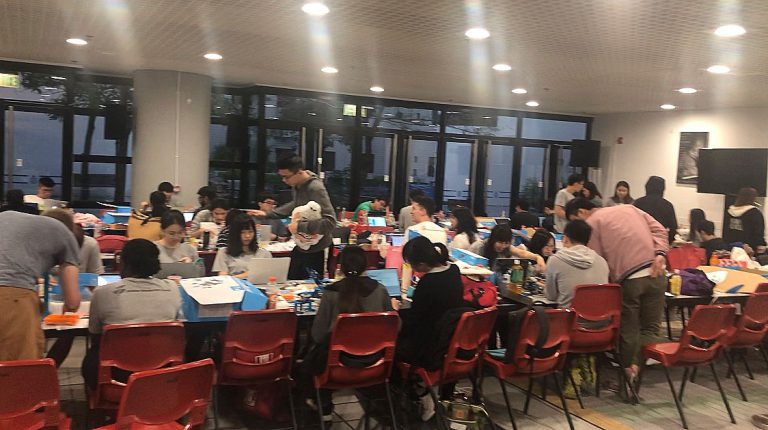給年輕創業者3點建議
我奉勸有志創業的朋友,當你選上這條路,就要有心理準備,旁邊一定會有人帶着懷疑眼光,以為你走投無路,不是因為工作表現差而給公司開除,就一定是人緣薄,在公司處處碰壁,給人排斥。還有一批人會認為你自視太高,又或者「家中有米」,不愁沒後路。如果你是學生,就會有人覺得你在人生中未經歷過多少風浪,看得電影多,以為自己是Steve Job或Mark Zuckerberg之流,未打過工就已經想創業,其實在發白日夢!
這些閒言閒語有沒有事實根據,一點也不重要。因為當你介意的時候,你已經輸掉。
第一:創業是心理素質比賽,比較性格甚於一切。你會考9A,環球工商管理畢業,創業比賽奪標,你也不一定會創業,因為關鍵是內在心理條件。看過許多創業比賽得獎者,比賽完結以後,回歸校園或職場,尤以機會成本最高的商科金融人最常見。對他們來說,這種比賽只不過是一場遊戲,自有其規則。參賽者只要懂得怎樣玩,勝算便高。而且許多人都抱着增廣見聞的心態來參加,贏了更可使簡歷錦上添花。
不怕失敗、獨立自主
那麽是什麽類型的性格會創業? 簡單直接一點來說就是那種不怕失敗、較自主獨立的性格,也就是命運在我手,由自己決定的哪種。絕對不是被「怪獸家長」和「操卷式學校」調教得貼貼服服的那一種。他們不會因為一些挫折,便會輕易放棄。此外,創業型性格必須是行動者(doer) 、製造者(maker)和建立者(builder)。
行動者坐言起行,不會單單得個「講」字。他們不會滿足於意念只活在腦海中,所以必定盡快成之於事。製造者更進一步會有步驟地把意念「產品化」,使它能給人家買得到。建立者知道不能只有產品而沒有組織,會花更大的心血把人和制度建立起來,使產品去得更遠。
如果性格是第一較勁的着眼點,溝通技巧是第二。溝通技巧第一步是認清溝通對象,不論是客户、co-founder、員工或者是投資者。知道是什麽樣的人會喜愛自己的產品和服務,是什麽樣的人會為你放棄一份優差,被你說服成為co-founder, 是什麽樣的人會為朝不保夕的初創公司打工,還有什麽樣的人會把錢給沒有亮麗業績的你。你不但要了解他們,你更需要知道用什麼說話、文字、圖象、數字打動他們。你必須是一個「說故事的藝術家」— artist of story telling。
「說故事的藝術家」
想知道怎樣在這方面修成正果?上網看看喬布斯(Steve Jobs)在2005年6⽉12號在斯坦福大學的畢業典禮上,面向一群即將畢業的大學生所說的三個故事 (視頻在網上很容易找到)。
喬布斯在生命中獲得的啟發
第⼀個故事是關於把生命中的點滴串連起來(connecting the dots)。他講述了自己被人領養 的過去。講到如何不想虛耗藍領階級的養父母的積蓄(他們都沒有上過大學),去上一些自⼰絲毫不感興趣的課,於是從Reed College(位於美國俄勒岡州的博雅學院)退學。退學後,他 並沒有立即離去,卻選擇了去旁聽書法班,更從中領畧到⽇後Macintosh電腦核⼼部分所需 要具備的字體功能。⼈⽣向前展望時不可能將這些片斷串連起來,但在回顧卻能。他祝願⼤家對自己要有信念。
第二個故事是關於愛與失去 (love and loss)。喬布斯道出他怎様從⼈生的高處掉下來,給他 ⾃⼰創⽴的蘋果公司炒魷魚。但他並沒有因此而放棄,他很清楚知道能使自己一直走下去的就是他在做⾃己⼗分熱愛的事情,義無反顧,一路往前。後來,他更把他離開蘋果後所創立的Next公司的技術,帶回蘋果,成為以後蘋果産品操作平臺的核心,使公司重生。
第三個故事是關於死亡(death)。這裡他分享了他從第⼀次被診斷患上胰臟癌而後來痊癒的 經驗。接近死亡,使他領略到不要把時間浪費在重覆別人的生命上,受教條朿縛,而不能活出自己。
如何打動人心,令人不枉此生? 看了上面關於喬布斯的經歴,不用我說你也會同意,了解你的溝通對象和有效的傳播最能經得起考驗。
擁專業技能重要嗎?
最後一點,也是許多人覺得最實在,甚至最重要的硬實力:專業技能。而在一個科技掛帥的數碼年代,人人在找App Developer的時候,科班出身的技術人員似乎最吃香。誰不知這種「偏看」,使到不少人把資源投放在跟風的技術上,而錯過了發掘自己的本身優勢。我自己就不知看過多少次空有技術而找不到市場的例子。也有見過只是技術普通,但定位好timing好的成功案例。
技術不是不重要,許多時更是決定優勢的關鍵條件,但是在創業這條路上知道怎樣利用技術去為特定需要的人解決問題,比徒有技術更重要。當你看到ChatGPT-3 (ChatGPT-4也面世了!) 如何展現出通順的文字功底和有板有眼的編程能力,你不得不審視在未來的世界自己的位置倒底在哪裏。Netscape創辦人Marc Andressen早在2011年在華爾街日報的一篇文章寫到:軟件吃掉世界!(The Software is Eating the World!),並舉列一連串的產業如何在近年被具創新思維的軟件公司所顛覆。我們的世界不乏一大堆問題要待解決,而有志創業的你必須問 : 我是否是那個能做出改變的人?



